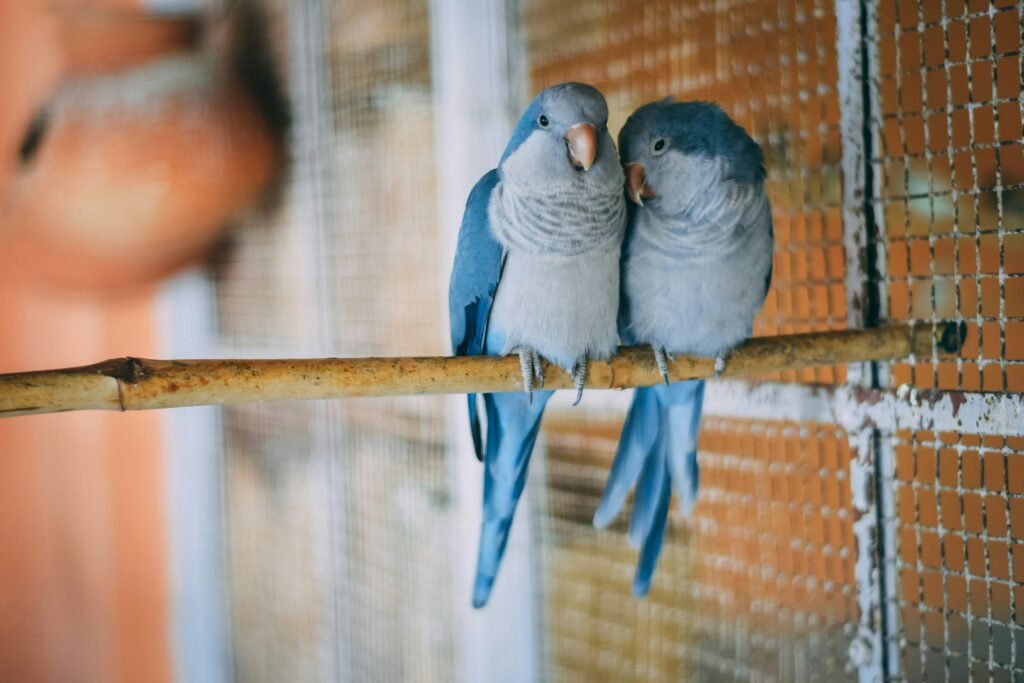I’ll admit, when I first heard about the new rule requiring bird keepers in England and Wales to register if they have up to 49 birds, my initial reaction was, “Oh great, another bureaucratic headache!” I thought it was going to be a bit of a pain in the bum. But, after looking into the reasons behind this legislation, I’ve come to see why it’s actually a good thing for bird keepers like me — and maybe for you too!

Preventing the Spread of Disease:
Bird flu and other avian diseases have been a real concern recently, and they spread fast. By requiring all bird keepers to register, the government can better track and manage these outbreaks. This means quicker action to contain the spread and protect not just your birds, but everyone else’s too.
Improving Response to Disease Outbreaks:
With registration, the Animal and Plant Health Agency (APHA) can quickly contact all bird keepers in a certain area if there’s an outbreak. They’ll give us the information we need to protect our birds and prevent the disease from spreading further. It’s actually a relief to know that if something happens, I won’t be left guessing about what to do.
Protecting Public Health:
Some strains of bird flu can infect humans, especially those who handle birds regularly. By ensuring all bird keepers are registered, authorities can manage outbreaks more effectively and reduce the risk of the disease spreading to people.
Ensuring Compliance with Biosecurity Measures:
The registration process also helps ensure that all bird keepers are aware of and following the right biosecurity practices. This means doing things like keeping birds away from wild ones that might carry diseases and maintaining clean living spaces for our flocks. It’s about protecting our birds and preventing potential disasters.

Better Access to Information and Guidance: I used to think, “Why do I need to register?” But now I see the benefit. By registering, bird keepers get direct updates and advice from APHA when there’s a disease threat. It’s like having a direct line to experts who can guide us on what to do to keep our birds safe.
Protecting Your Flock and Others: Registering is a simple step that helps safeguard your birds and others in the community. Diseases like bird flu don’t care if you have two birds or twenty — they can affect us all. So, by registering, I’m doing my part to protect my feathered friends and support my neighbors and local farmers too.
Supporting Animal Welfare: This legislation isn’t just about paperwork; it’s about ensuring our birds are healthy and safe. No one wants to see their birds suffer, and registering helps us all take steps to prevent that from happening.
Contributing to National Efforts: I hadn’t thought about how my small flock fits into the bigger picture, but it does! By registering, I’m contributing to a nationwide effort to track bird populations, identify potential hotspots for diseases, and respond quickly. It turns out that even small-scale bird keepers like me play an essential role in protecting everyone’s birds.

The good news is that registering is pretty straightforward and only takes about 10 minutes online. All they need is some basic info: your contact details, the location where the birds are kept, and the types and numbers of birds. If you don’t have internet access, there are other ways to register, like downloading a form or calling APHA directly.
If you have 50 or more birds, you’re already required by law to register your premises. This new rule mainly targets those of us with smaller flocks or pet birds, making sure everyone is included in the effort to protect our bird populations.
Honestly, I thought this was going to be a hassle, but now I see it’s actually a small price to pay for the peace of mind it brings. This new registration requirement is a proactive step to keep our birds safe, protect public health, and support animal welfare. So, if you keep up to 49 birds, go ahead and register by 1 October 2024. It’s quick, easy, and ultimately, it’s good for all of us!
Sometimes a little effort goes a long way — and in this case, it helps protect the birds we love.
